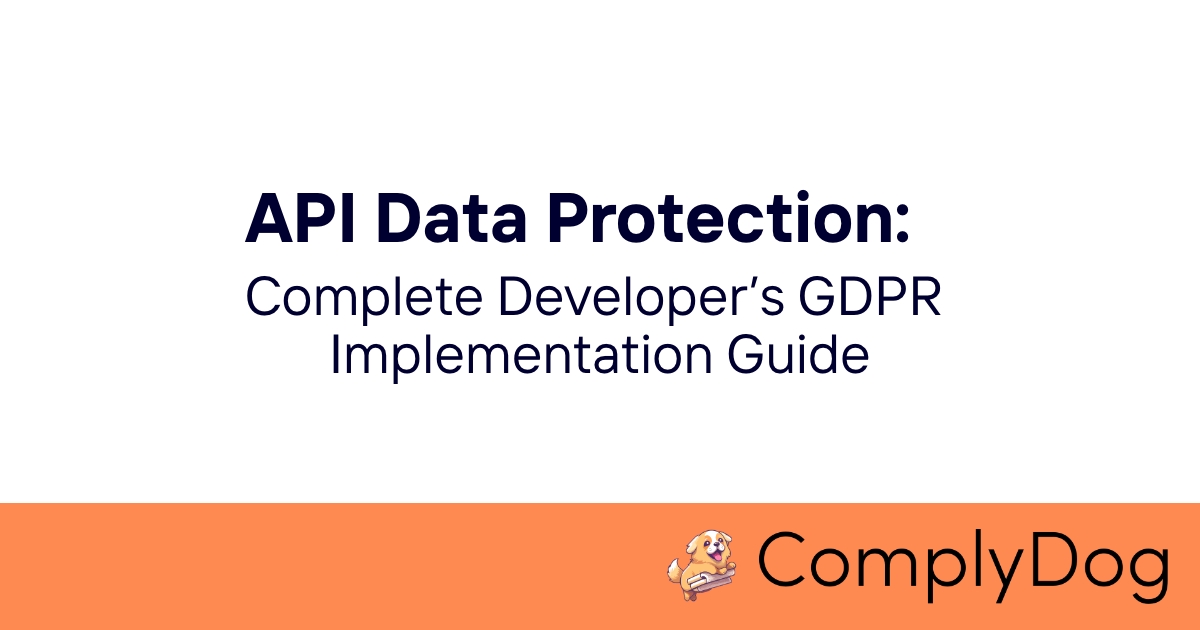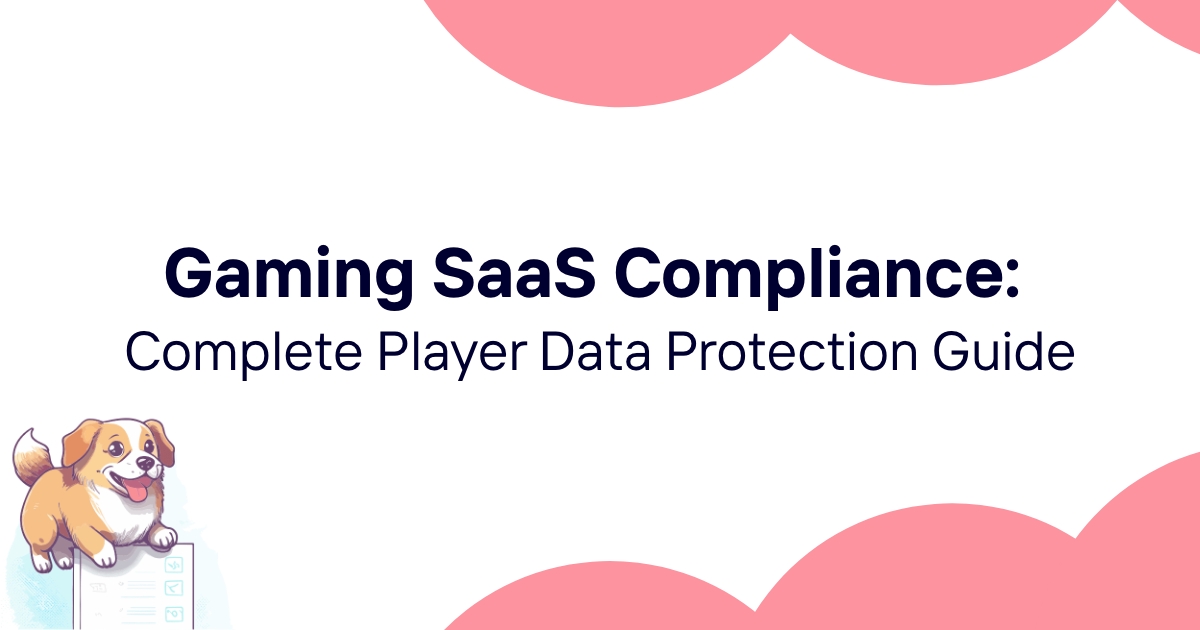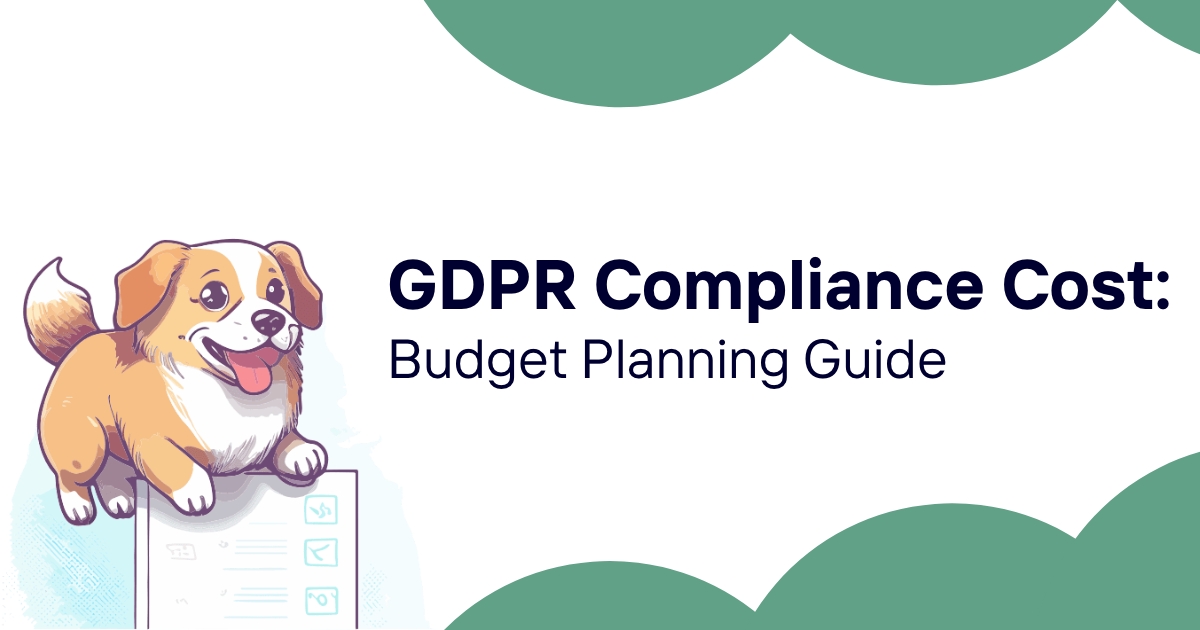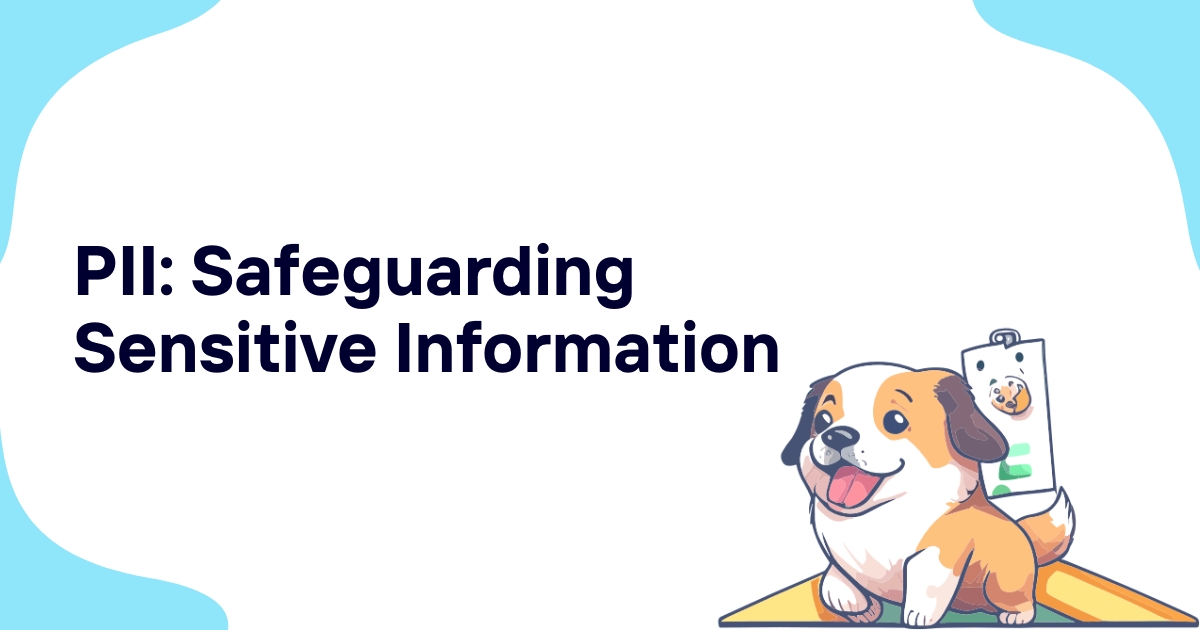API data protection requires developers to implement comprehensive privacy controls throughout API design, development, and deployment while ensuring GDPR compliance for all personal data processing that occurs through application programming interfaces. Modern SaaS architectures depend heavily on APIs for data exchange, making privacy protection at the API level critical for overall system compliance and customer trust.
The complexity of API data protection lies in balancing developer productivity and API functionality with comprehensive privacy controls that protect personal data throughout data collection, processing, transmission, and storage activities across distributed systems and third-party integrations.
APIs often serve as the primary data exchange mechanism between systems, making them critical points for implementing privacy controls including data minimization, consent verification, access controls, and audit logging that ensure GDPR compliance throughout complex technical architectures.
Developers implementing API data protection must understand how privacy requirements translate into technical specifications while building APIs that provide necessary functionality without compromising personal data protection or creating compliance gaps in system integrations.
Proper API privacy implementation requires systematic approach to endpoint design, authentication mechanisms, data validation, error handling, and monitoring that ensures comprehensive privacy protection while maintaining API performance and developer experience quality.
ComplyDog helps development teams implement comprehensive API data protection through systematic privacy assessment, automated compliance monitoring, and integrated development workflows that ensure privacy controls enhance rather than constrain API functionality and system integration.
API Privacy Design Principles
Implementing privacy by design principles in API development ensures that data protection becomes integral to API architecture rather than retrofitted compliance feature that compromises functionality or developer experience.
Data Minimization in API Design:
Design APIs that implement data minimization principles by collecting, processing, and transmitting only personal data necessary for specific API functionality while avoiding excessive data collection that creates privacy risks without corresponding business value.
Implement endpoint design that requests minimal data fields while providing clear documentation about data requirements and ensuring API functionality remains effective with reduced data collection scope.
Purpose Limitation for API Endpoints:
Design API endpoints with clear purpose limitation that ensures personal data processing serves specific, documented purposes while preventing function creep and unauthorized secondary use throughout API development and deployment.
Configure endpoint specifications that define processing purposes clearly while ensuring API functionality aligns with documented purposes and privacy policy commitments to users and customers.
Privacy-Preserving API Architecture:
Implement API architecture that preserves privacy through appropriate data handling, storage minimization, and processing controls while maintaining necessary functionality and system integration capabilities.
Design system architecture that supports privacy protection through appropriate data flow controls, temporary data handling, and privacy-preserving processing techniques that reduce privacy risks.
Consent-Aware API Development:
Develop APIs that integrate consent verification and management throughout endpoint functionality while ensuring appropriate consent checking and enforcement for personal data processing activities.
Implement consent integration that provides seamless consent verification while ensuring API functionality respects user privacy choices and consent withdrawal throughout system interactions.
Transparency and Documentation:
Provide comprehensive API documentation that explains data processing, privacy controls, and developer responsibilities while ensuring transparent communication about privacy protection and compliance requirements.
For insights on implementing systematic privacy controls in technical environments, check out our startup GDPR compliance guide which addresses similar resource-efficient privacy implementation challenges.
Authentication and Authorization Privacy Controls
Implementing comprehensive authentication and authorization controls ensures that API access protects personal data while providing necessary functionality and maintaining appropriate security throughout system interactions and data processing.
Privacy-Aware Authentication Design:
Design authentication mechanisms that protect user privacy while providing necessary identity verification and access control throughout API interactions and system integration activities.
Implement authentication that minimizes personal data collection while ensuring appropriate identity verification through privacy-preserving authentication techniques and secure credential management.
Authorization and Scope Management:
Implement authorization controls that limit API access to necessary data and functionality while ensuring appropriate scope limitation and access controls throughout personal data processing and system interactions.
Configure authorization scopes that provide granular access control while ensuring API functionality remains efficient and developer-friendly through clear scope definition and management procedures.
Token-Based Privacy Protection:
Use token-based authentication that protects personal data while providing secure API access and ensuring appropriate token management throughout authentication lifecycle and access control procedures.
Design token systems that provide privacy protection while maintaining API security through appropriate token generation, validation, and revocation procedures that protect user privacy.
Rate Limiting and Privacy Protection:
Implement rate limiting that protects against abuse while ensuring privacy protection through appropriate access controls and monitoring that prevent unauthorized data access or excessive processing.
Configure rate limiting that provides system protection while maintaining API functionality through appropriate throttling and access management that supports legitimate use cases.
Session Management Privacy Controls:
Implement session management that protects personal data while providing necessary functionality through appropriate session handling, data minimization, and privacy controls throughout user interactions.
Data Validation and Sanitization
Implementing comprehensive data validation and sanitization ensures that APIs handle personal data appropriately while protecting against privacy violations and maintaining data quality throughout processing workflows.
Input Validation Privacy Controls:
Implement input validation that protects personal data while ensuring appropriate data quality and format verification throughout API data collection and processing activities.
Design validation that prevents privacy violations while maintaining data quality through appropriate field validation, format checking, and data sanitization procedures.
Output Filtering and Data Minimization:
Implement output filtering that ensures APIs return only necessary personal data while protecting against excessive data exposure and maintaining appropriate data minimization throughout response generation.
Configure response filtering that provides necessary functionality while ensuring personal data minimization through appropriate field selection and data exposure controls.
Data Transformation Privacy Protection:
Implement data transformation that protects personal data while providing necessary processing functionality through privacy-preserving transformation techniques and appropriate data handling procedures.
Design transformation processes that maintain privacy protection while supporting API functionality through appropriate data processing and privacy-preserving technical implementations.
Error Handling Privacy Considerations:
Implement error handling that protects personal data while providing useful error information through appropriate error message design and privacy-aware exception handling procedures.
Configure error responses that provide debugging information while preventing personal data exposure through appropriate error message sanitization and privacy protection measures.
Data Format Privacy Standards:
Use data formats that support privacy protection while maintaining interoperability and functionality through privacy-aware format selection and implementation procedures.
Consent Management API Integration
Integrating consent management throughout API functionality ensures that personal data processing respects user choices while maintaining API functionality and supporting privacy compliance throughout system interactions.
Consent Verification in API Calls:
Implement consent verification that checks user consent status before processing personal data while ensuring appropriate consent validation and enforcement throughout API functionality.
Design consent checking that provides seamless verification while ensuring API performance and functionality through efficient consent validation and caching mechanisms.
Dynamic Consent Management:
Implement dynamic consent management that adapts API functionality based on user consent choices while ensuring appropriate feature availability and privacy protection throughout system interactions.
Configure dynamic functionality that respects consent decisions while maintaining useful API capabilities through appropriate feature gating and consent-aware processing.
Consent Withdrawal Handling:
Implement consent withdrawal handling that processes consent changes appropriately while ensuring immediate enforcement and appropriate data handling throughout consent lifecycle management.
Design withdrawal processing that provides immediate enforcement while maintaining system integrity through appropriate data handling and consent state management procedures.
Granular Consent API Support:
Support granular consent management through API functionality that enables fine-grained privacy control while maintaining system efficiency and user experience throughout consent administration.
Implement granular consent that provides meaningful choice while ensuring system performance through appropriate consent granularity and management efficiency.
Consent Documentation and Audit:
Maintain comprehensive consent documentation through API logging and audit capabilities while ensuring appropriate consent tracking and compliance demonstration throughout consent management activities.
Data Subject Rights API Implementation
Implementing data subject rights through API functionality ensures that individuals can exercise privacy rights efficiently while maintaining system security and providing comprehensive rights support throughout customer interactions.
Data Access API Endpoints:
Implement data access endpoints that provide comprehensive personal data retrieval while ensuring appropriate security controls and data compilation throughout access request processing.
Design access APIs that provide complete data compilation while maintaining security through appropriate authentication, authorization, and data aggregation procedures.
Data Portability API Support:
Implement data portability endpoints that provide personal data in machine-readable formats while ensuring appropriate data compilation and format standardization throughout portability request processing.
Configure portability APIs that provide useful data formats while maintaining security through appropriate data export and format conversion procedures.
Data Deletion API Implementation:
Implement data deletion endpoints that process erasure requests comprehensively while ensuring appropriate data removal and system integrity throughout deletion processing activities.
Design deletion APIs that provide complete data removal while maintaining system functionality through appropriate data dependency management and deletion verification procedures.
Data Correction API Functionality:
Implement data correction endpoints that process rectification requests appropriately while ensuring data quality and validation throughout correction processing and data update activities.
Configure correction APIs that provide effective data updates while maintaining data integrity through appropriate validation and correction verification procedures.
Rights Request Management APIs:
Implement rights request management that tracks and processes data subject requests efficiently while ensuring appropriate workflow management and compliance tracking throughout rights administration.
Security and Encryption Implementation
Implementing comprehensive security and encryption ensures that APIs protect personal data throughout transmission, processing, and storage while maintaining system performance and functionality.
Transport Layer Security (TLS) Implementation:
Implement TLS encryption that protects personal data during transmission while ensuring appropriate certificate management and encryption standards throughout API communication and data exchange.
Configure TLS that provides comprehensive protection while maintaining API performance through appropriate encryption configuration and certificate management procedures.
Data Encryption at Rest:
Implement data encryption at rest that protects stored personal data while ensuring appropriate key management and encryption standards throughout data storage and retrieval operations.
Design encryption that provides comprehensive protection while maintaining system performance through appropriate encryption algorithms and key management procedures.
API Key and Token Security:
Implement API key and token security that protects authentication credentials while ensuring appropriate credential management and security controls throughout API access and authorization.
Configure credential security that provides robust protection while maintaining developer experience through appropriate key management and security procedure implementation.
Database Security and Privacy:
Implement database security controls that protect personal data while ensuring appropriate access controls and monitoring throughout data storage and retrieval operations.
Design database security that provides comprehensive protection while maintaining query performance through appropriate security configuration and access control implementation.
Audit Logging and Monitoring:
Implement comprehensive audit logging that tracks personal data access and processing while ensuring appropriate monitoring and security oversight throughout API operations and data handling.
Performance and Privacy Optimization
Optimizing API performance while maintaining privacy protection ensures that privacy controls enhance rather than constrain system functionality and developer experience throughout API implementation and usage.
Caching Privacy Considerations:
Implement caching strategies that improve performance while protecting personal data through appropriate cache management and privacy controls throughout data caching and retrieval operations.
Design caching that provides performance benefits while ensuring privacy protection through appropriate cache scope and data handling procedures.
Database Query Privacy Optimization:
Optimize database queries that process personal data while ensuring appropriate query design and privacy protection throughout data retrieval and processing operations.
Configure query optimization that provides performance improvements while maintaining privacy protection through appropriate query design and data access patterns.
API Response Privacy Optimization:
Optimize API responses that include personal data while ensuring appropriate response design and data minimization throughout response generation and data transmission.
Design response optimization that provides efficient data transfer while ensuring privacy protection through appropriate response structure and data inclusion procedures.
Monitoring Privacy Performance:
Monitor API performance metrics that include privacy control effectiveness while ensuring appropriate performance measurement and optimization throughout system monitoring and improvement activities.
Implement performance monitoring that provides comprehensive insights while ensuring privacy protection through appropriate metrics collection and analysis procedures.
Scalability Privacy Planning:
Plan API scalability that maintains privacy protection while ensuring appropriate system scaling and performance enhancement throughout capacity expansion and growth management.
Design scalability that supports growth while maintaining privacy protection through appropriate architecture planning and privacy control scaling procedures.
Ready to build privacy-protected APIs that developers love and customers trust? Use ComplyDog and implement comprehensive API data protection that transforms privacy compliance from development constraint into competitive advantage through systematic privacy integration and developer-friendly implementation approaches.


















